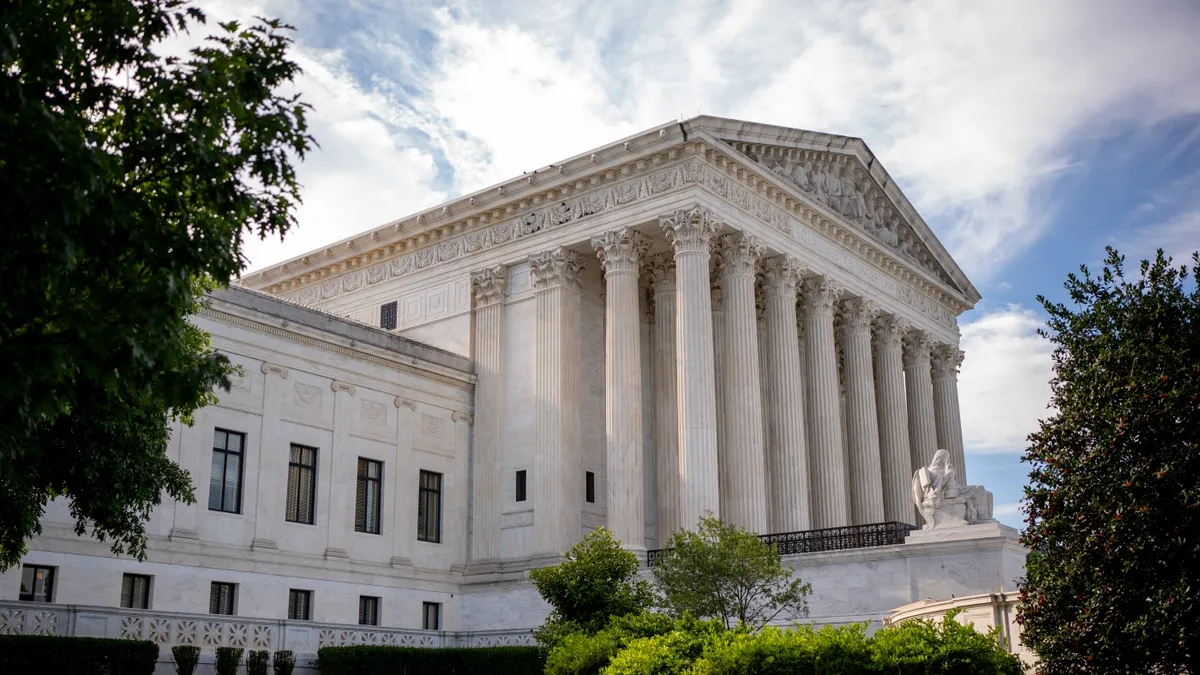
On Thursday, the U.S. Supreme Court convened to hear a pivotal case that challenges the constitutional provision ensuring automatic citizenship for all babies born within the United States. While the central issue revolves around birthright citizenship, the arguments presented primarily focused on a related question: Can federal district court judges issue rulings against the federal administration that apply nationwide? The justices exhibited a split in their perspectives on this contentious issue.
During the hearing, several justices expressed skepticism regarding the Trump administration's assertion that lower courts lack the authority to issue nationwide injunctions. Justice Brett Kavanaugh probed Solicitor General D. John Sauer, the government's attorney, about the practical enforcement of Trump's controversial order. Justice Kavanaugh's inquiries highlighted the complexities surrounding the enforcement of such executive actions.
Justice Ketanji Brown Jackson took a more critical stance, asserting that the government's argument could transform the judicial system into a "catch me if you can" scenario, where individuals must engage legal representation and file lawsuits to protect their rights from governmental overreach. This perspective underscores the significant implications that the ruling could have on access to justice for citizens and immigrants alike.
In contrast, Justice Clarence Thomas appeared more amenable to Sauer's arguments, recalling that the United States had functioned without the practice of nationwide injunctions until the 1960s. This historical reference reflects an ongoing debate about the balance of power between federal courts and the executive branch. New Jersey Solicitor General Jeremy Feigenbaum, representing 22 states that are suing the government, advocated for the availability of nationwide injunctions in specific cases, such as those involving birthright citizenship.
Kelsi Corkran, who represented pregnant women and immigrant rights organizations, proposed that nationwide injunctions should only be permitted when government actions are perceived by plaintiffs as violating constitutional rights. She argued that limiting injunctions to just the parties involved in the case would create administrative challenges, emphasizing the need for a broader legal framework in such significant matters.
President Trump has consistently argued that the Constitution does not guarantee birthright citizenship. On the first day of his second presidential term, he issued an executive order that would prevent automatic citizenship for babies born in the U.S. to parents who entered the country illegally or who were present on temporary visas. Following this order, Trump took to Truth Social to assert that the origins of birthright citizenship trace back to the post-Civil War era, claiming it has no relevance to contemporary immigration policy. He also reiterated the inaccurate assertion that the U.S. is unique in its provision of birthright citizenship.
In response, immigrant rights groups and the 22 states quickly challenged Trump's order in court. Since then, three federal judges—both conservative and liberal—have declared the executive order as blatantly unconstitutional, while three separate appellate courts have declined to lift these rulings during ongoing appeals. Notably, Trump's legal stance has garnered minimal support, prompting the administration to escalate the matter to the Supreme Court on an emergency basis.
Instead of directly contesting the legality of Trump's executive order, the administration's legal team concentrated on the authority of federal district judges to issue nationwide rulings against the executive branch. This nuanced focus underscores the broader implications of the case, which could redefine the interaction between the judicial and executive branches of government in matters pertaining to birthright citizenship and administrative powers.
This story is still developing, and updates will be provided as more information becomes available.